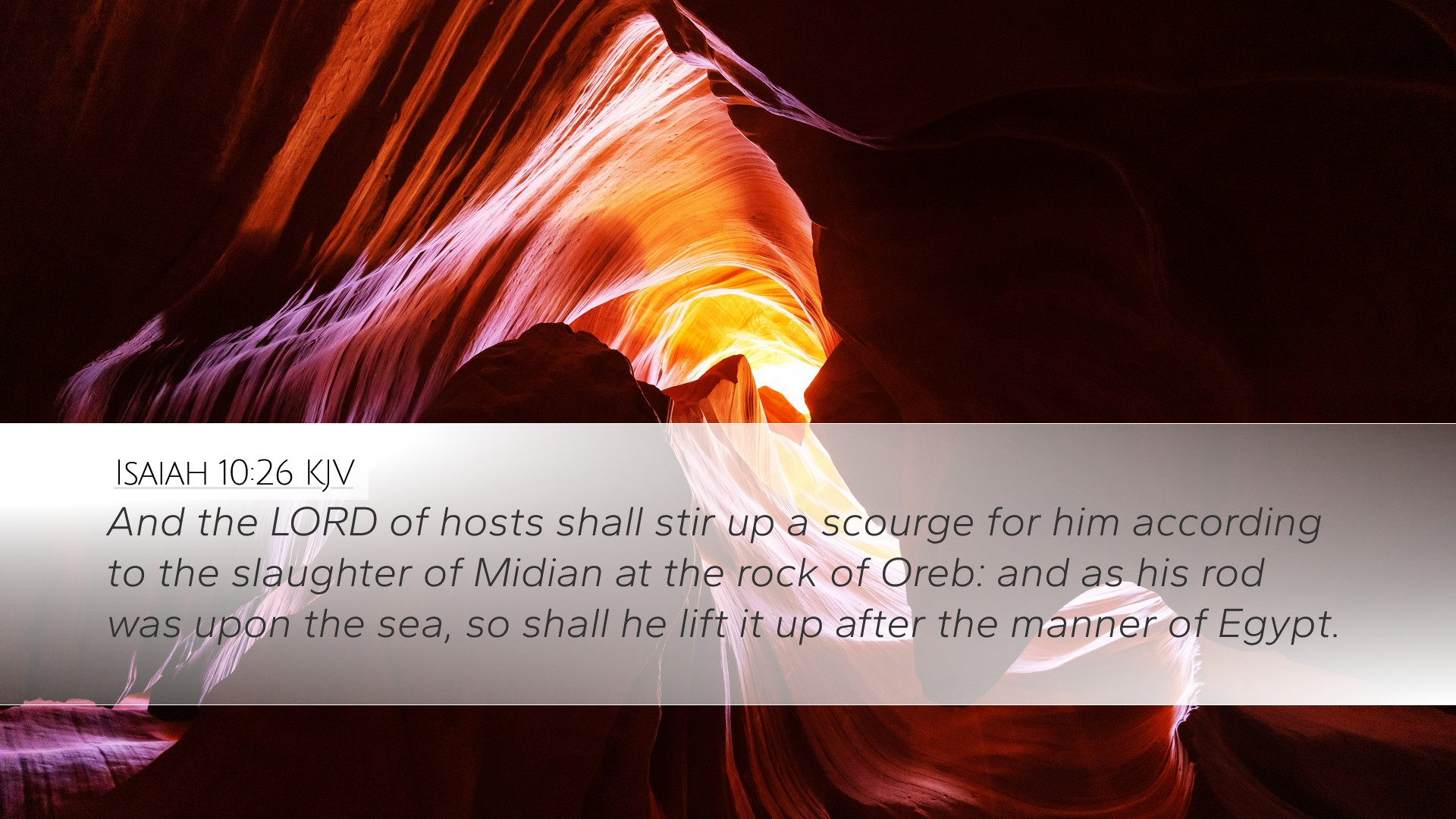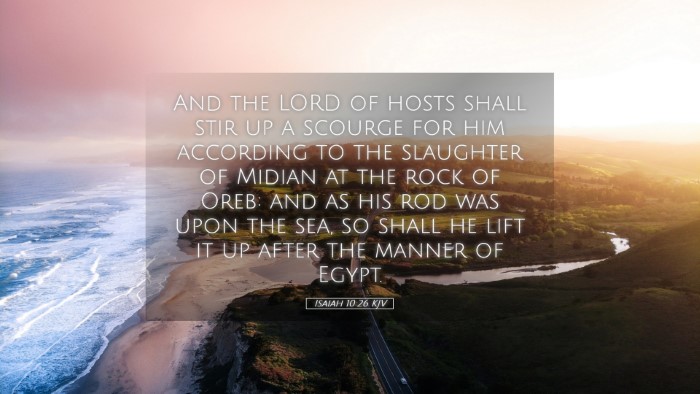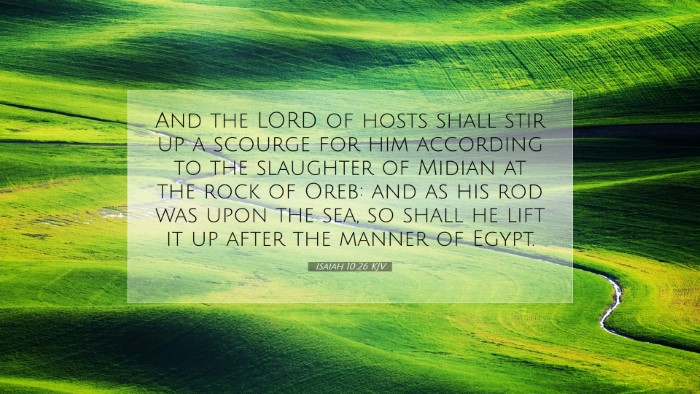Commentary on Isaiah 10:26
Scripture Reference: Isaiah 10:26 - "And the LORD of hosts shall stir up a scourge for him according to the slaughter of Midian at the rock of Oreb: and as his rod was upon the sea, so shall he lift it up after the manner of Egypt."
Introduction
The verse Isaiah 10:26 serves as a powerful reminder of God's sovereignty and His ability to deliver judgment against those who oppress His people. This commentary seeks to unpack the profound implications of this verse using insights from notable public domain commentaries.
Contextual Background
Isaiah's prophecies come during a tumultuous time in Israel's history, characterized by disobedience and the looming threat of Assyrian domination. This particular chapter highlights God’s impending judgment against Assyria and reassures Israel of divine intervention.
Analysis and Insights
God’s Sovereign Judgment
Matthew Henry emphasizes that the “LORD of hosts” refers to God in His role as commander of the heavenly armies, which signifies His authority over all creation. This announcement of stirring up a scourge implies that God is not passive but actively involved in executing justice.
Historical Allusions
Both Albert Barnes and Adam Clarke draw parallels to historical events that demonstrate God's capability to deliver His people. The reference to the slaughter of Midian at the Rock of Oreb recalls the time when God delivered Israel from the Midianite oppressors through Gideon (Judges 7). This serves to encourage the faithful that God can use seemingly weak means (as Gideon was) to bring about His purposes.
Symbolism of the Rod
The imagery of the "rod" is significant, as it symbolizes divine authority and judgment. Adam Clarke notes that the use of a rod in both the context of Assyria and the sea (referring to the parting of the Red Sea during the Exodus) connects the deliverance of Israel from both Midian and Egypt, illustrating God’s unchanging method of intervention.
Comparative Interpretations
Henry’s commentary elucidates that just as God dealt with hostile nations in the past, He is poised to do so again. The mention of Egypt further underscores God’s historical faithfulness; it encapsulates a prelude to Israel’s liberation that resonates with contemporary believers facing oppression.
Theological Implications
This verse is rich with theological implications. It speaks of God’s omnipotence and His unyielding commitment to His covenant promises. The understanding that He “shall lift it up” encourages believers to trust in His timing and methodology of deliverance, which may not align with human expectations.
Practical Applications
For pastors and theologians, this text invites reflection on God’s methods of discipline and deliverance. For congregants, it serves as a hopeful reminder that God can and will act decisively against injustice. In preaching, this verse can be employed to highlight the urgency of repentance and reliance on God amidst adversity.
Conclusion
Isaiah 10:26 encapsulates the themes of divine judgment, historical precedent, and theological reflection. The interconnectedness of these elements validates the power of God to act within history for the deliverance of His people. As we reflect upon these insights, let us carry forth the understanding that God remains in control, reminding us to look with hope and trust in His sovereign plans.
Further Study
- Examine the surrounding verses for broader context.
- Consider historical instances of divine intervention as reflected in Scripture.
- Engage in prayerful reflection on God’s current work in the world.


